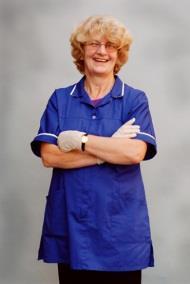Given a central role reshaping services, healthcare users can drive better patient experience and create a more sustainable use of resources, says Don Redding

There is consensus in health policy that the service needs a radical shift from hospital to community based care.
But while reconfiguration − large scale re-engineering by service managers − occupies the headlines, an equally significant engine to drive a more sustainable NHS has received much less attention.
This is “co-production” − the idea that those who use health and care services can be centrally involved in critiquing them and reshaping them.
Over the last two years, Nesta and the Innovation Unit have investigated the potential of co-production approaches through the People Powered Health programme.
Building on lessons from person centred healthcare programmes such as the Diabetes Year of Care, and the Health Foundation’s Co-Creating Health, People Powered Health developed a vision in which:
- The health and social care system mobilises people and recognises their assets, strengths and abilities, not just their needs.
- The ability to live well with long term conditions is powered by a partnership of equals between people and healthcare professionals.
- The health and care system organises care around the patient in ways that blur the multiple boundaries between health, public health, social care and community and voluntary organisations.
Six teams who had successfully bid were given funding and support to try out these approaches.
Co-production in action
In Lambeth, faced with a dramatic reduction in resources for mental health but an increase in need, clinicians, managers and service users formed a common ambition: to move from an expensive, inefficient, crisis dominated system to one focused on prevention, early intervention and enablement.
All those who use the services were involved, not just as consultees but as equal partners, with clinicians, practitioners, social workers and others in a series of workshops (with 1,600 participants in all) to redesign those services. A new service user umbrella group was given formal status to contribute to commissioning.
GPs, social workers and mental health teams are operating in networks and referring between themselves; but also, contributions from voluntary and community sector groups such as peer support and time banking are seen as integral parts of the package.
A national voice
For National Voices, a coalition of around 130 health and social care charities in England, People Powered Health’s investigation of the practices of co-production and co-design speaks to the daily concerns of our member charities and their beneficiaries.
We know that services designed with their users − where personal experience of managing our lives with our conditions is as valued as clinical or managerial knowledge − work better, support us more and are more likely to achieve the outcomes we want and need.
In our manifesto for changes to the government reforms in 2011, we demanded that:
- Service users should have real involvement, with genuine influence.
- We should be seen as ‘expert commissioners’.
- Care should be moved to the right place, at the right time.
- Paternalism should end.
Co-production and co-design help to address and encourage these necessary changes to the culture of healthcare.
House of care
The vision for better quality of life for people with long term conditions will encompass “house of care” approaches and the user driven narrative for person centred coordinated care.
‘Services designed with their users work better, support us more and are more likely to achieve the outcomes we want and need’
If so, commissioners will need to develop an awareness of the potential of co-production and co-design (sometimes called experience based design), and a knowledge of the local networks of voluntary and community groups that can both bring service users into service redesign, and contribute to new community based packages of provision.
Importantly, commissioners must also be able to draw upon models of commissioning and contracting that secure the small − but to the user, highly significant − person centred inputs from a range of voluntary and community sector groups that help people stay well and manage well.
People Powered Health has piloted some of these models, such as alliance contracting, but it is an urgent task for NHS England to develop them further.
The programme and its predecessors point to a potential win-win of better experience and outcomes for service users, based on a more appropriate and sustainable use of limited resources. According to Nesta’s business case report, the approaches tested within the programme could save at least £4.4bn a year.
Don Redding is director of policy at National Voices



























3 Readers' comments